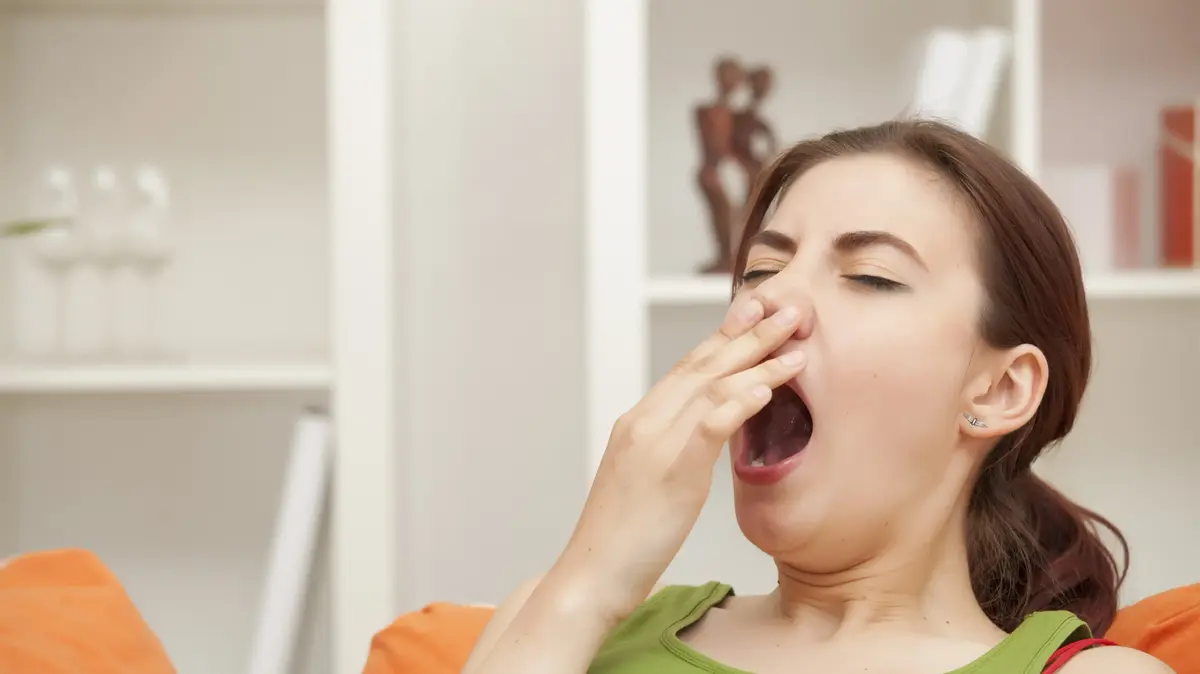Fauci compares covid-19 with "Spanish flu" 0:59
(CNN) -
We all know how much better we feel after a good night's sleep.
It turns out that sleep can be vital to arm ourselves in the fight against influenza and covid-19.
Medical professionals recommend that people make sure to get a flu vaccine this year, in part because some symptoms of covid-19 and the flu are similar.
The flu shot reduces the chance that your symptoms (if you get sick) are due to the flu.
For the flu vaccine to be effective, sleep specialist Matthew Walker, best-selling author of "Why We Sleep," told CNN's Christiane Amanpour that practicing "good sleep hygiene" is important.
Not getting enough sleep in the week before getting the flu vaccine can lead to the production of less than 50% of the normal antibody response, a reaction that would make the flu vaccine largely ineffective, Walker told him. to Amanpour.
Walker specializes in the relationship between sleep and human health at the University of California, Berkeley.
Looking for better sleep?
These apps can help you
Why is it important to get enough good sleep?
3:23
Walker cited a 2002 study published by the Journal of the American Medical Association.
And a 2020 study in the International Journal of Behavioral Medicine backs up those findings.
This suggests that getting a night's sleep before vaccination could be critical to the effectiveness of the vaccine.
advertising
The Walter Reed Army Research Institute has ongoing studies investigating the relationship between sleep and immunity and future studies planned to investigate sleep and the efficacy of the vaccine.
For Walker, tests like this could represent a breakthrough for our resistance to the coronavirus.
"So we have to study if there is the same relationship between sleep and successful vaccination against covid-19, because if there is, that could also change the rules of the game," he said.
Sleep strengthens our immune system
Lack of sleep not only reduces the effectiveness of the flu vaccine.
It's because your body is actually repairing and restoring itself on a cellular level while you sleep.
"People who sleep less than seven hours are three times more likely to be infected with the rhinovirus or the common cold," Walker said.
"We know that people who sleep five hours or less a night are 70% more likely to get pneumonia."
We are supposed to sleep between seven and ten hours each night, depending on age.
A variety of health conditions, including mood swings, paranoia, depression, high blood pressure, a weakened immune system, weight gain, and decreased libido, have been linked to poor sleep in studies.
It is also linked to an increased risk of some cancers, dementia, diabetes, stroke, and cardiovascular disease.
Sleeping less than the recommended amount on a regular basis could even double the risk of dying prematurely, according to a longitudinal study of 10,308 British civil servants.
People who reduced their sleep to seven to five hours or less per night were almost twice as likely to die from all causes, the researchers found, but especially from cardiovascular disease.
These tips will help you get a good night's sleep 1:53
Is it difficult to sleep at this time?
It can be difficult to sleep well at this time.
An increase in people sleeping poorly during the pandemic has been reported.
A study by the Kaiser Family Foundation found that 36% of Americans reported having difficulty sleeping this summer due to stress caused by the pandemic.
It's clear, Walker said, that economic instability and anxiety about contracting the virus have significantly contributed to an increase in sleep disruption.
But it is not all bad news.
Some people's sleep has actually increased slightly, Walker said.
A survey by Monash University in Melbourne, Australia, suggested why this may be the case.
Initial results taken by around 1,600 people from 60 countries showed that 42% said they were sleeping better, reporting sleep-wake behavior more in line with their biological clocks.
These findings will be published later this year.
With a second wave on the horizon and the "new normal" of our routines at home, many people no longer have to get up early to go to work or get the kids up early from school.
"If there is flexibility, people begin to approach their natural tendencies," Walker said.
If you have trouble sleeping, here are some steps you can take.
(It's worth consulting your doctor if you're worried about your sleep.)
10 commandments to sleep better
Do you need more sleep?
Follow these recommendations
You can train your body for a more restful sleep with a few key steps:
Make sure your bed and pillows are comfortable and the room is cool - 15-20 degrees Celsius is best.
Don't work or watch TV in your bedroom, so your brain knows that your bedroom is only for sleeping.
Avoid coffee, tea, and other stimulants after 3pm and fatty foods before bed.
Eliminate blue light from cell phones or laptops and all lights at bedtime (and also make sure sounds are turned off).
Use earplugs or a white noise machine if you need to (but you can also get a white noise effect with a humidifier or fan)
Look for good exposure to natural light during the day, as this will help regulate your circadian rhythm and your bedtime routine.
Take a warm shower or bath, listen to quiet music, read a book, meditate, or do light stretches.
InfluenzaCoronavirus Vaccine







